Practice Makes Perfect: Why Training Different Pistol Shooting Positions Could Save Your Life
Practice Makes Perfect: Why Training Different Pistol Shooting Positions Could Save Your Life
How effective are you with a pistol from various shooting positions? Do you even practice alternative shooting positions during your professional development?
Be Prepared
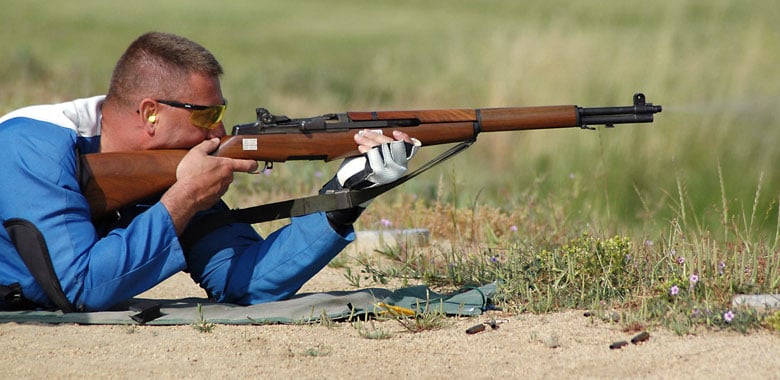
When we talk about shooting positions, most folks immediately think about firing a rifle from the prone and they’d be correct. However, being a well rounded shooter means being able to adapt to the situation, or as I like to say, “let the situation dictate.”
If the situation calls for using your pistol from a kneeling or prone position, can you effectively engage targets while in these positions? Asking this question the moment you find yourself in one of these positions during a gunfight is the worse possible time; just in case that wasn’t obvious.
Think Big Picture
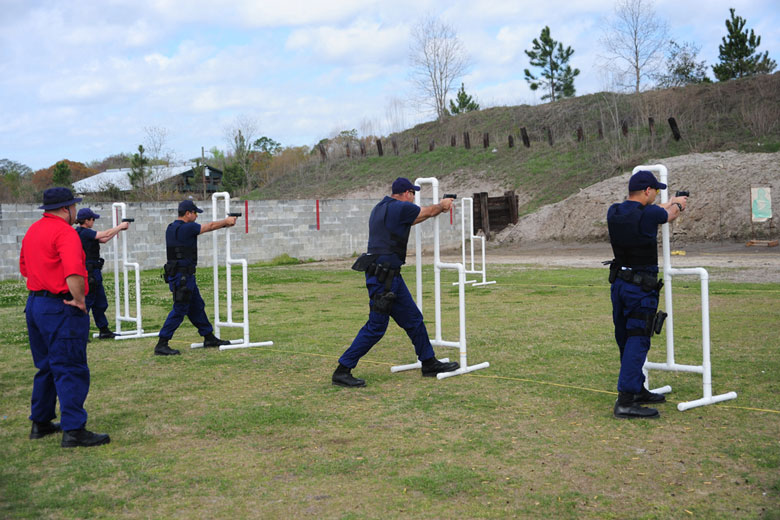
Why would you need to utilize positions in a gunfight? The most likely answer would be taking advantage of some form of cover. If you have the opportunity to seek cover, but it requires you to use a position other than standing, would you still use it knowing you haven’t in the past?
Forcing students to work outside their comfort zone is part of learning. Aside from using cover, one of the only other reasons you might use an alternative position, is if you lacked cover and wanted to make your profile smaller. If you find yourself with nothing but air around you and needing to return fire, reducing your profile is a good idea.
Familiarity Breeds Comfort
We teach various types of kneeling and prone positions; each is somewhat interchangeable with the two platforms (rifle and pistol.) However, the rifle has an advantage by allowing us to increase the stability by resting weapon parts on the ground or our body parts.
Rifles also utilize slings, which when used properly can greatly increase your stability for more demanding shots. The key to stability is knowing the position, but truthfully it’s your mobility. If you lack flexibility, the kneeling position will be hell for you, or at least your potential for accuracy. Don’t get me wrong, you can still make good hits while being as flexible as a board, but you could make even better hits with a greater range of motion.
Details, Details, Details
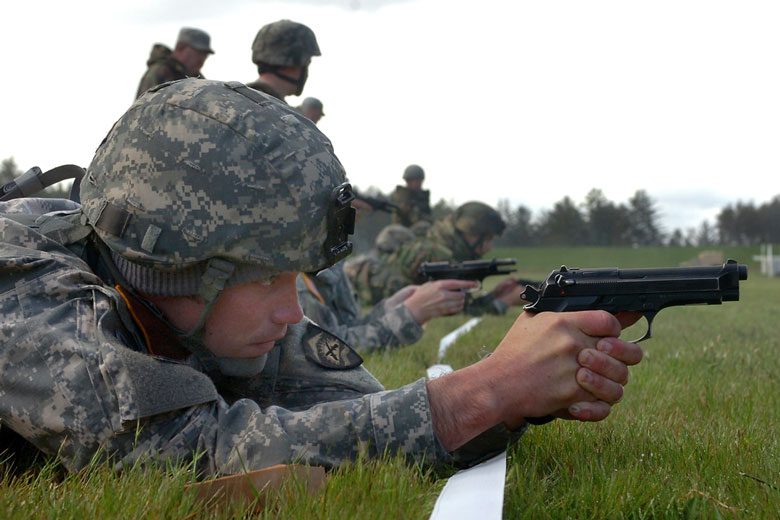
The prone position is the grand old position for the rifle and allows us to use an unsupported technique of resting our elbows on the ground. The pistol doesn’t afford us this same luxury, so it’s important to learn how to stack your grip in the prone. This is the technique of raising your strong hand in your weak hand grip and along with incorporating a slight “roll over” technique, will give you the next best thing.
A benefit to “rolling over” is increasing your ability to breathe. I know it may seem silly to mention this, but a major complaint from students is the pressure their body undergoes in the chest region when attempting prone. I love shooting in this position and even though the likelihood of employing these techniques is minimal, it shouldn’t prevent you from practicing them.
If an opportunity presents itself, having familiarity with positional work will ensure you can quickly take advantage of it. I promise you that in a gunfight, your opponent will be looking to exploit every opportunity themselves.
Editor-in-Chief’s Note: Jeff Gonzales was a decorated and respected US Navy SEAL, serving as an operator and trainer who participated in numerous combat operations throughout the world. He now uses his modern warfare expertise as President of Trident Concepts, LLC., a battle proven company specializing in weapons, tactics and techniques to meet the evolving threat. Bringing the same high-intensity mindset, operational success and lessons learned from NSW to their training programs, TRICON has been recognized as an industry leader by various federal, state and local units. Organizations interested in training with TRICON can call 928-925-7038 or visit tridentconcepts.com for more information.
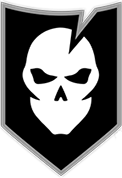





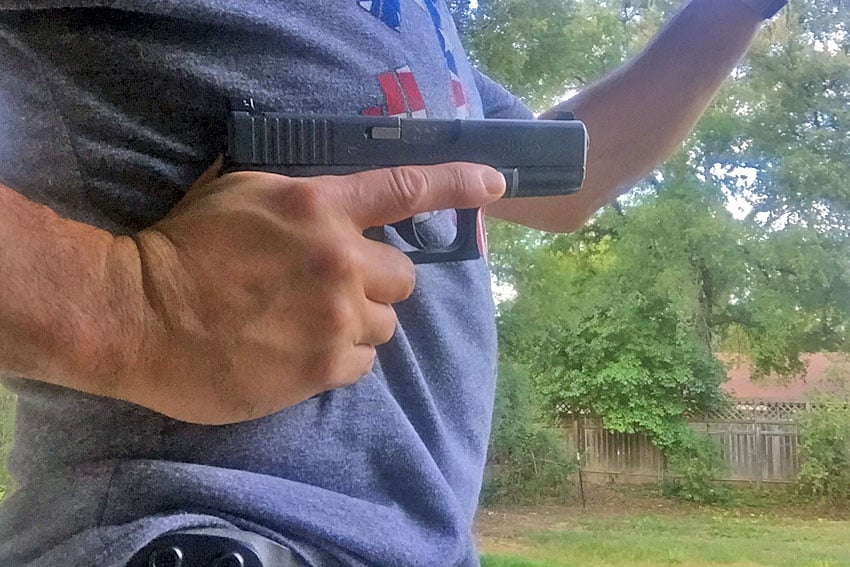
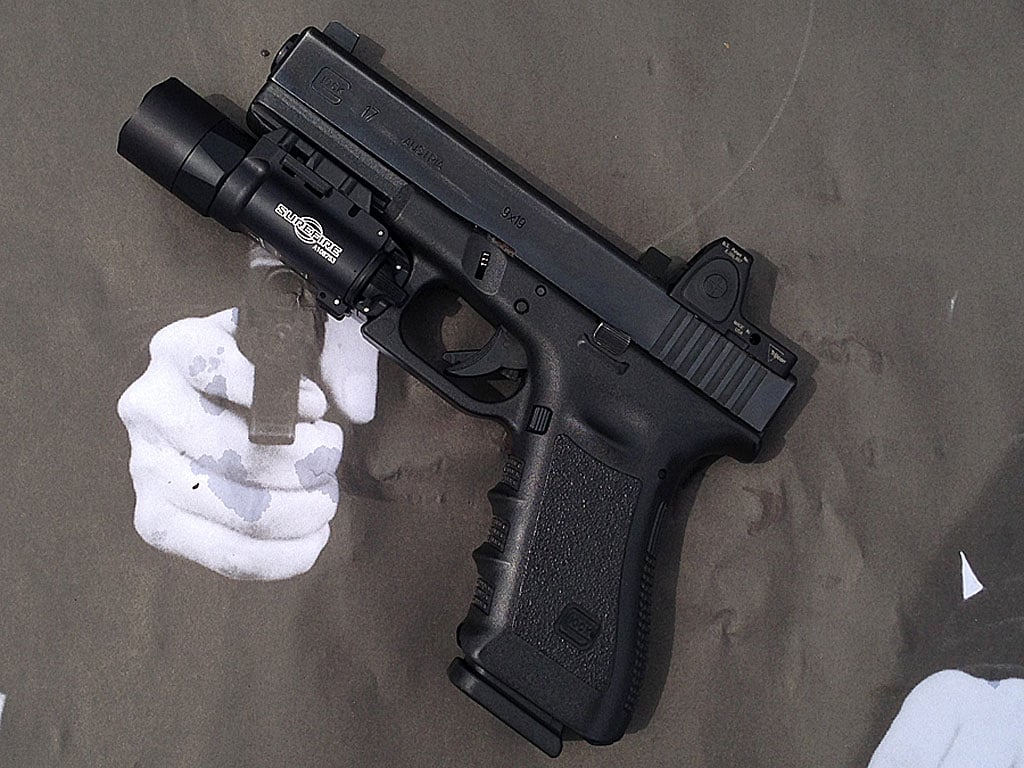

Discussion